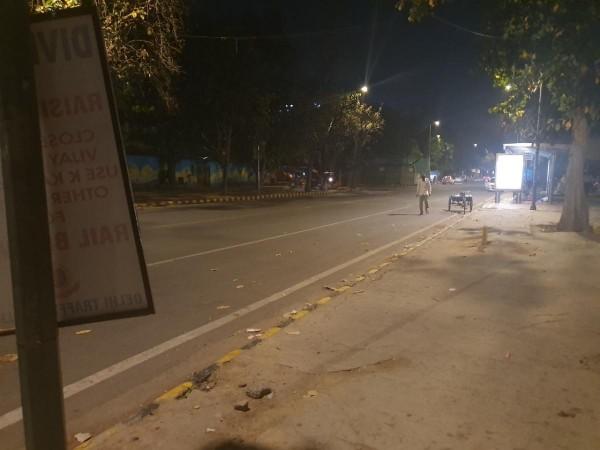In order to curb rising Covid infections, the Gujarat government on Tuesday extended the night curfew to nine other major cities of the state from 8 p.m. to 6 a.m till May 5. This will come into force from Wednesday. Twenty major cities of Gujarat are already under night curfew for the last three weeks.
Gujarat, similar to the rest of the country, has been witnessing an unprecedented rise in Covid cases, losing lives due to the pandemic throughout the month of April. The central government came out with an order on Monday with regard to imposing lockdown-like measures in the states, if the positivity rate is more than 10 per cent.

Monday saw the highest spike of cases at 14,340 with the total caseload climbing to over five lakhs, following which the Gujarat government on Tuesday decided to extend the night curfew to nine more cities.
The night curfew will be effective from 8 p.m. to 6 a.m. and will come into force from Wednesday till May 5. The government has already banned political or social gatherings till April 30 and reduced the number of guests at marriages to fifty from hundred, following a Gujarat High Court order. Other gatherings have also been limited to a maximum of fifty people.
Gujarat Chief Minister Vijay Rupani chaired a core committee meeting late on Monday evening where the latest decision was taken, after the central government's order.
The existing night curfew has been in force in Ahmedabad, Surat, Vadodara, Rajkot, Jamangar, Bhavnagar, Junagadh, Gandhinagar, Anand, Nadiad, Mehsana, Morbi, Dahod, Patan, Godhra, Bhuj, Gandhidham, Bharuch, Surendranagar and Amreli till April 30 which has been extended to May 5 now.
All businesses and activities apart from essential services have been barred in Gujarat. Grocery, vegetable shops, milk booths will continue to operate. So will manufacturing units and industries, provided Covid protocols are strictly followed.
There is a ban on shopping malls, complexes, auditoriums, cinema halls, flea markets, swimming pools, gymnasiums, salons, spa, beauty parlours, amusement parks among others.
Public transport will continue to operate with fifty per cent capacity.

















